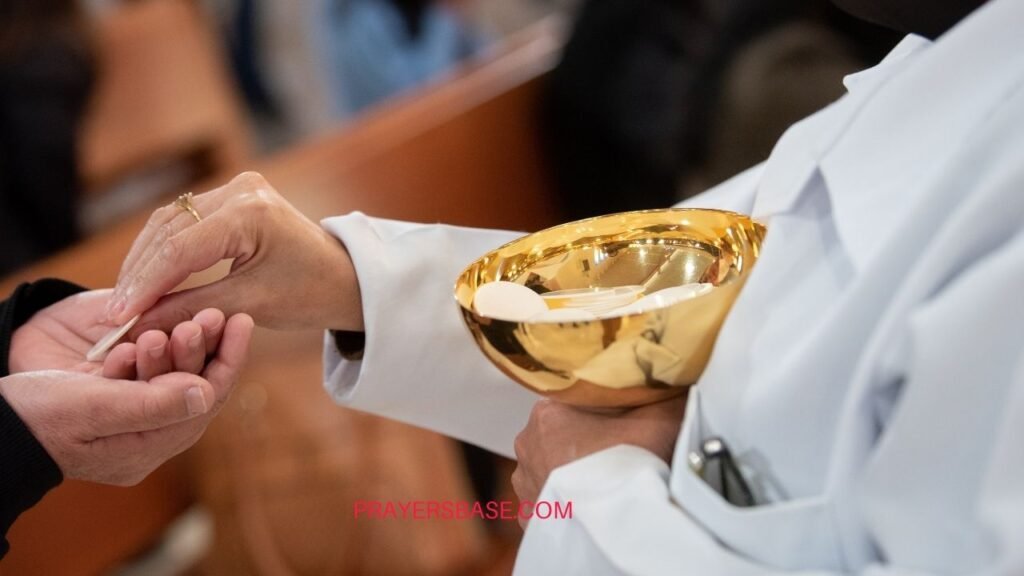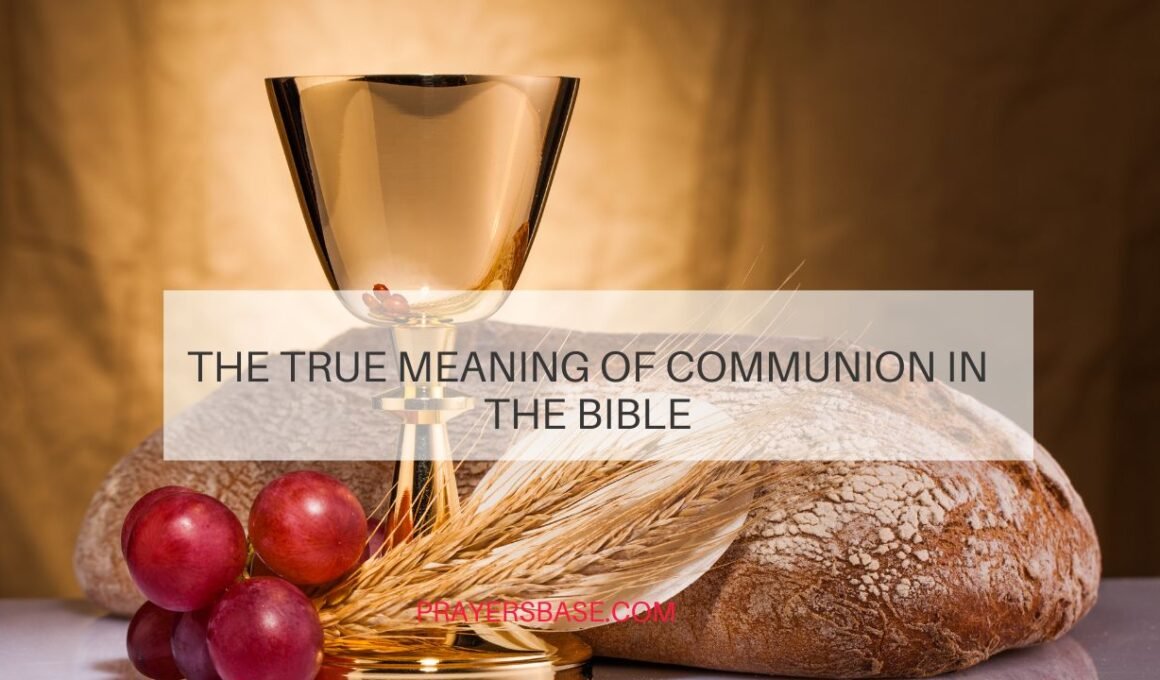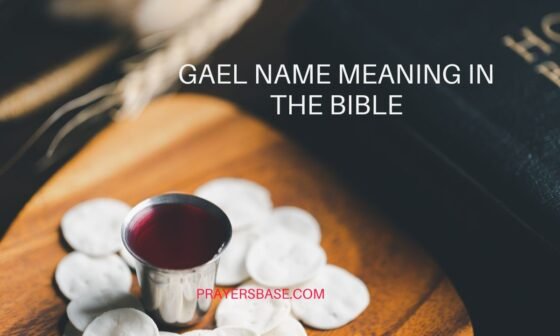Communion in the Bible is a special moment where believers come together to remember Jesus. It’s about sharing in the bread and the wine, which represent Jesus’ body and blood. But it’s much more than just a tradition; it’s a meaningful act that connects us to Jesus and to each other as a church family. When we take Communion, we reflect on His love, His sacrifice, and the new life He offers us through His death and resurrection.
A Quick Look at the History of Communion
So, where did this tradition come from? It all started during Jesus’ last meal with His disciples, known as the Last Supper. This meal was held during the Jewish Passover, a time when people remembered God’s deliverance of the Israelites from Egypt. But at this meal, Jesus took the bread and wine and gave them new meaning—His body and blood, given for us. This act became the foundation of what we now call Communion.
Why is the Last Supper Important?
The Last Supper wasn’t just about eating together; it was about Jesus giving us something to hold onto forever. When He broke the bread and shared the wine, He told His disciples, “Do this in remembrance of Me” (Luke 22:19). That’s where the tradition began. Jesus wanted us to remember His sacrifice and the new covenant He made with us. Every time we take Communion, we’re honoring that moment and deepening our relationship with Him.
The Biblical Foundation of Communion
To really understand Communion, let’s look at how it started in the Bible. Jesus gave us this special practice, and it has deep meaning.

The Institution of Communion – How Jesus Introduced It (Luke 22:19-20)
Jesus didn’t just talk about Communion; He instituted it Himself during the Last Supper with His disciples. After sharing the Passover meal, He took the bread, broke it, and said, “This is my body, which is given for you; do this in remembrance of me” (Luke 22:19). Then, He did the same with the cup, saying, “This cup that is poured out for you is the new covenant in my blood” (Luke 22:20).
In that simple but powerful act, Jesus was setting up something that would last forever. He was giving His followers a way to remember His sacrifice and to renew their commitment to Him. This act of taking bread and wine is not just a ritual—it’s a way for us to stay connected to Jesus and to each other.
Jesus as the Lamb – Connection to the Passover (John 1:29)
To understand Communion fully, it’s helpful to look back at the Jewish Passover. The Passover was a celebration of God’s deliverance of the Israelites from Egypt, marked by the sacrifice of a lamb. But when John the Baptist saw Jesus, he called Him, “the Lamb of God who takes away the sin of the world” (John 1:29).
By sharing the bread and wine, Jesus was connecting His sacrifice to the Passover. Just as the lamb’s blood was used to protect the Israelites, Jesus’ blood would be shed to save us from sin. Communion isn’t just a meal; it’s a reminder of the ultimate sacrifice of the Lamb of God.
The Apostles’ Teaching on Communion – Early Christian Practice (Acts 2:42)
After Jesus’ death and resurrection, the early Christians continued to celebrate Communion, just as Jesus had taught them. In Acts 2:42, it says, “They devoted themselves to the apostles’ teaching and to the fellowship, to the breaking of bread and to prayer.” This “breaking of bread” is a reference to Communion. The early church gathered regularly to remember Jesus’ sacrifice, and that practice has been passed down to us today.
Symbolism of Communion in the Bible
Communion isn’t just about bread and wine. It’s filled with powerful symbols that help us understand Jesus’ love and sacrifice.
Bread and Wine – The Body and Blood of Christ (1 Corinthians 11:23-24)
When we take Communion, we’re holding more than just bread and wine. These simple elements carry deep meaning. In 1 Corinthians 11:23-24, Paul reminds us of Jesus’ words: “This is my body, which is for you. Do this in remembrance of me.” The bread represents Jesus’ body, which was broken for us on the cross. The wine represents His blood, shed for the forgiveness of our sins.
But why bread and wine? Well, bread is a basic, life-sustaining food, and wine has long been a symbol of celebration and joy. In Communion, these elements remind us that Jesus gives us life—His sacrifice sustains us spiritually, and His blood brings us joy through the forgiveness it offers.
The New Covenant – What It Means for Believers (Matthew 26:28)
When Jesus shared the cup with His disciples, He said, “This is my blood of the covenant, which is poured out for many for the forgiveness of sins” (Matthew 26:28). This wasn’t just a ritual; it was the establishment of a new covenant between God and His people.
The old covenant was based on the law, but the new covenant, made through Jesus’ sacrifice, is based on grace. Communion serves as a reminder that we are saved by grace—not by our works—and we are invited to share in God’s love through Jesus’ sacrifice.
Christ’s Sacrifice – Symbol of His Death and Resurrection (Romans 5:8)
Communion doesn’t just look back at Jesus’ death; it also points to His resurrection. Romans 5:8 tells us, “But God demonstrates His own love for us in this: While we were still sinners, Christ died for us.” Through Communion, we remember that Jesus’ death wasn’t the end—it was the beginning of new life for all who believe in Him.
By taking part in Communion, we’re acknowledging the depth of His love and remembering that through His death and resurrection, we too have the hope of eternal life.
Unity in Christ – Communion as a Symbol of Unity Among Believers (1 Corinthians 10:16-17)
One of the most powerful aspects of Communion is its ability to unite believers. In 1 Corinthians 10:16-17, Paul writes, “Because there is one loaf, we, who are many, are one body, for we all share the one loaf.” When we take Communion together, we are reminded that we’re not just individuals; we are part of a larger family—the body of Christ.
Communion is a moment where we come together as one, united in our faith in Christ. It’s a symbol of our shared relationship with Him and with each other. It reminds us that we are all in this journey together, bound by the love and grace of God.
The Significance of Communion in the Bible
Communion is more than just a tradition; it has deep spiritual meaning and brings us closer to God. Here’s why it’s so important:
Remembering Christ’s Death – Why We Celebrate It (1 Corinthians 11:25)
When we take Communion, we remember Jesus’ death on the cross. 1 Corinthians 11:25 tells us, “Whenever you eat this bread and drink this cup, you proclaim the Lord’s death until He comes.” This helps us never forget the sacrifice He made for our salvation.
Spiritual Nourishment – How Communion Feeds Our Spirit (John 6:55-56)
Communion also gives us spiritual nourishment. In John 6:55-56, Jesus says, “Whoever eats my flesh and drinks my blood has eternal life.” It’s not about the bread and wine themselves, but about what they represent—Jesus feeding our souls and giving us eternal life. Taking Communion helps us feel closer to Jesus and strengthens our faith.
Forgiveness and Redemption – How Communion Shows God’s Forgiveness (Matthew 26:28)
When we take Communion, we also remember God’s forgiveness. Matthew 26:28 says, “This is my blood of the covenant, which is poured out for many for the forgiveness of sins.” The bread and wine remind us that through Jesus’ sacrifice, we are forgiven and made new.
Participation in Christ’s Life – Drawing Closer to Jesus (John 6:53-58)
Lastly, Communion is a way to participate in Christ’s life. In John 6:53-58, Jesus tells us that eating His body and drinking His blood is about being one with Him. Through Communion, we draw closer to Jesus and experience His presence in our lives.
The Power of Communion: How It Strengthens Our Faith
Communion is not just a remembrance; it’s a way to grow in our faith and draw strength from God.

Spiritual Renewal – How Communion Brings Refreshment to Our Faith (Acts 3:19)
Taking Communion helps us renew our faith. In Acts 3:19, we’re told to “repent, then, and turn to God, so that your sins may be wiped out, that times of refreshing may come from the Lord.” Every time we take Communion, we are refreshed spiritually, reminded of God’s forgiveness, and re-energized to follow Him.
A Means of Grace – Receiving God’s Grace Through Communion (1 Corinthians 11:27-29)
Communion is also a way of receiving God’s grace. In 1 Corinthians 11:27-29, Paul warns us to approach Communion with reverence, but also reminds us that it’s a means to receive God’s blessing. When we take Communion, we’re opening our hearts to God’s grace, which strengthens and empowers us to live out our faith.
Anticipating the Kingdom – Looking Forward to Christ’s Return Through Communion (1 Corinthians 11:26)
Finally, Communion helps us look forward to the future. In 1 Corinthians 11:26, Paul says, “For whenever you eat this bread and drink this cup, you proclaim the Lord’s death until He comes.” Taking Communion is a way to remind ourselves that Christ will return, and we eagerly await His second coming to fully restore all things.
Who Should Take Communion?
Not everyone can take Communion. The Bible gives us some guidelines to help us understand who should participate and how to approach it with the right heart.
Self-Examination Before Communion – How to Approach the Lord’s Table (1 Corinthians 11:28)
Before taking Communion, it’s important to take a moment for self-examination. 1 Corinthians 11:28 says, “Everyone ought to examine themselves before they eat of the bread and drink from the cup.” This means we should reflect on our relationship with God, confess any sins, and approach Communion with a clean heart.
Believers’ Responsibility – Why Communion is for Christians (Luke 22:19)
Communion is meant for Christians—those who believe in Jesus and have accepted Him as their Savior. Luke 22:19 tells us that Jesus shared the meal with His disciples. For us today, that means Communion is for those who are following Christ and want to remember His sacrifice.
Worthiness and Reverence – The Importance of Taking It with Respect (1 Corinthians 11:27)
Finally, it’s important to take Communion with respect. 1 Corinthians 11:27 warns that “whoever eats the bread or drinks the cup of the Lord in an unworthy manner will be guilty of sinning against the body and blood of the Lord.” This means we should always approach Communion with reverence and gratitude for what Jesus has done.
Modern-Day Practice of Communion
Communion is still a central part of Christian worship today, but the way it’s practiced can vary. Let’s explore how it’s celebrated across different traditions.
How Often Should We Take Communion? – Different Practices Across Denominations
Some churches take Communion every week, while others do it monthly or during special occasions. The frequency can vary depending on church tradition. The important thing is that Communion should be a meaningful part of our faith, whether it’s taken often or less frequently.
Communion in Different Christian Traditions – Catholic, Protestant, Orthodox Views
Different Christian traditions have slightly different views on Communion. In the Catholic Church, Communion is seen as the actual body and blood of Christ, while in many Protestant churches, it’s seen as a symbol of Christ’s body and blood. The Orthodox Church has similar beliefs to Catholics but with some unique practices. Despite these differences, all Christians agree that Communion is a way to remember Jesus and stay connected to Him.
Personal Reflection and Communion – Practicing Communion in Your Own Life
Even if you don’t take Communion every Sunday, you can still practice it in your own life. You can set aside time to reflect on Jesus’ sacrifice, pray, and think about how Communion connects you to God. Personal reflection helps make Communion even more powerful, no matter when or how you take part in it.
Conclusion: The Spiritual Significance of Communion in the Bible
Communion is a powerful and meaningful part of the Christian faith. It’s a way for us to remember Jesus’ sacrifice, experience His love, and strengthen our relationship with Him. Whether we take Communion often or just occasionally, it’s always a time to reflect on the new life we have through Christ.
When we understand the true meaning of Communion, we see how it connects us to God and to each other as believers. It’s not just a ritual—it’s a deep, spiritual practice that reminds us of the hope and peace we have in Jesus.
Frequently Asked Questions (FAQs)
Here are some common questions people ask about Communion in the Bible.
What is the true meaning of Communion in Christianity?
Communion is a way for Christians to remember Jesus’ sacrifice on the cross. It symbolizes His body and blood, given for the forgiveness of sins. Through Communion, we are reminded of His love and what He did for us.
Why did Jesus break the bread during Communion?
When Jesus broke the bread, He was showing His disciples that His body would be broken for them. The bread represents His body, which would be sacrificed for the forgiveness of sins. Breaking the bread helps us remember His love and sacrifice.
Is Communion only for church gatherings?
While Communion is often shared during church services, you can practice it at home too. It’s about remembering Jesus and connecting with Him, no matter where you are. The key is doing it with a sincere heart and understanding its significance.
What does it mean to take Communion “in remembrance of me”?
When Jesus says, “Do this in remembrance of me,” He’s asking us to reflect on His death and the love He showed us on the cross. Taking Communion helps us never forget the sacrifice He made for our salvation.
Can anyone take Communion, or does it have to be a Christian?
Communion is meant for Christians—those who believe in Jesus and His sacrifice. It’s a way for believers to remember Him and grow in faith. It’s important to approach Communion with the right heart, understanding its meaning.
Reflect and Share the Power of Communion
We’d love to hear your thoughts! How has Communion impacted your life? Share your experiences in the comments below. And don’t forget to bookmark this article for future reflection on the power of Communion in your walk with Christ.







